With red flags flying, active management gets interesting again
Anyone who has been following my content for a while will know that I like to focus on data rather than sentiment or emotion when making investment decisions. Preferably, I also like to consider more than a single data point.
I penned a wire a few weeks back that focused primarily on macro forecasts, one of the criticisms of which was that such forecasts could hardly be considered data. Point taken.
So, I decided to go a little harder and reach out to a fund manager who I know has exceptional data and isn’t afraid to share it – Plato Investment Management’s Dr David Allen.
The questions I posed to Allen and his responses (and data points) are below.
1. What is your current thinking on share market valuations?
If anyone tells you otherwise, politely excuse yourself and run a mile.
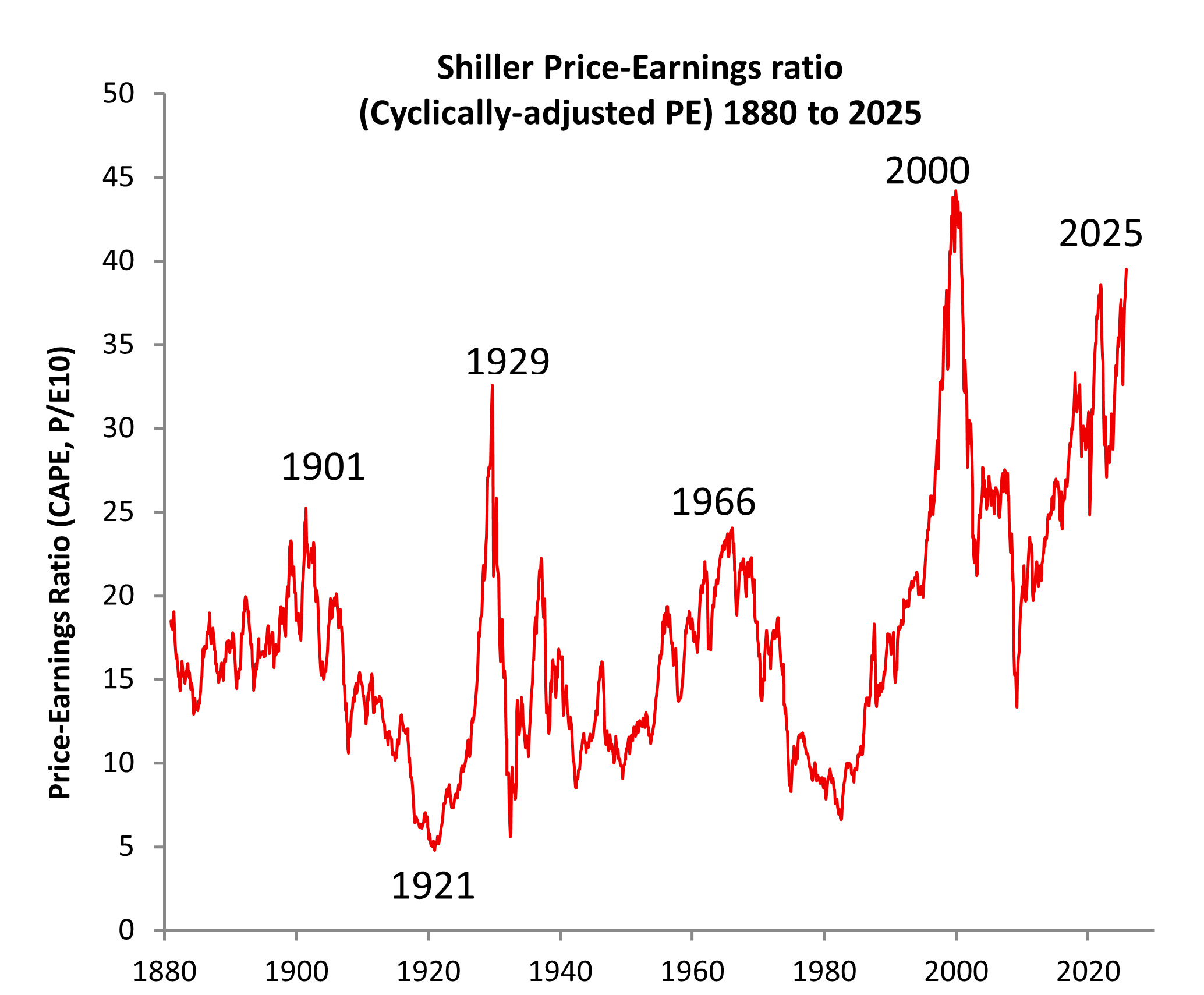
Yes, there are some eye-watering extremes - NVIDIA alone is now worth more than the entire UK stock market - but the more interesting story lies in the dispersion.
Tesla trades at a P/E of 234x, while Ford trades at 8x. Put differently:
- One dollar invested in Tesla buys you just 0.4 cents of earnings.
- One dollar in Ford buys you 12.5 cents.
Elon may one day deliver humanoid robots and fully autonomous driving, but for now, the market is rewarding dreamers over doers.
This record dispersion in valuations - mirrored by record dispersion in stock returns - is both a warning and an opportunity.
For investors like us, that’s fertile ground. At Plato, our Global Alpha portfolio trades on a P/E of 17 (as we are short many very expensive companies), versus 31.5 for the S&P 500 and 35 for the NASDAQ.
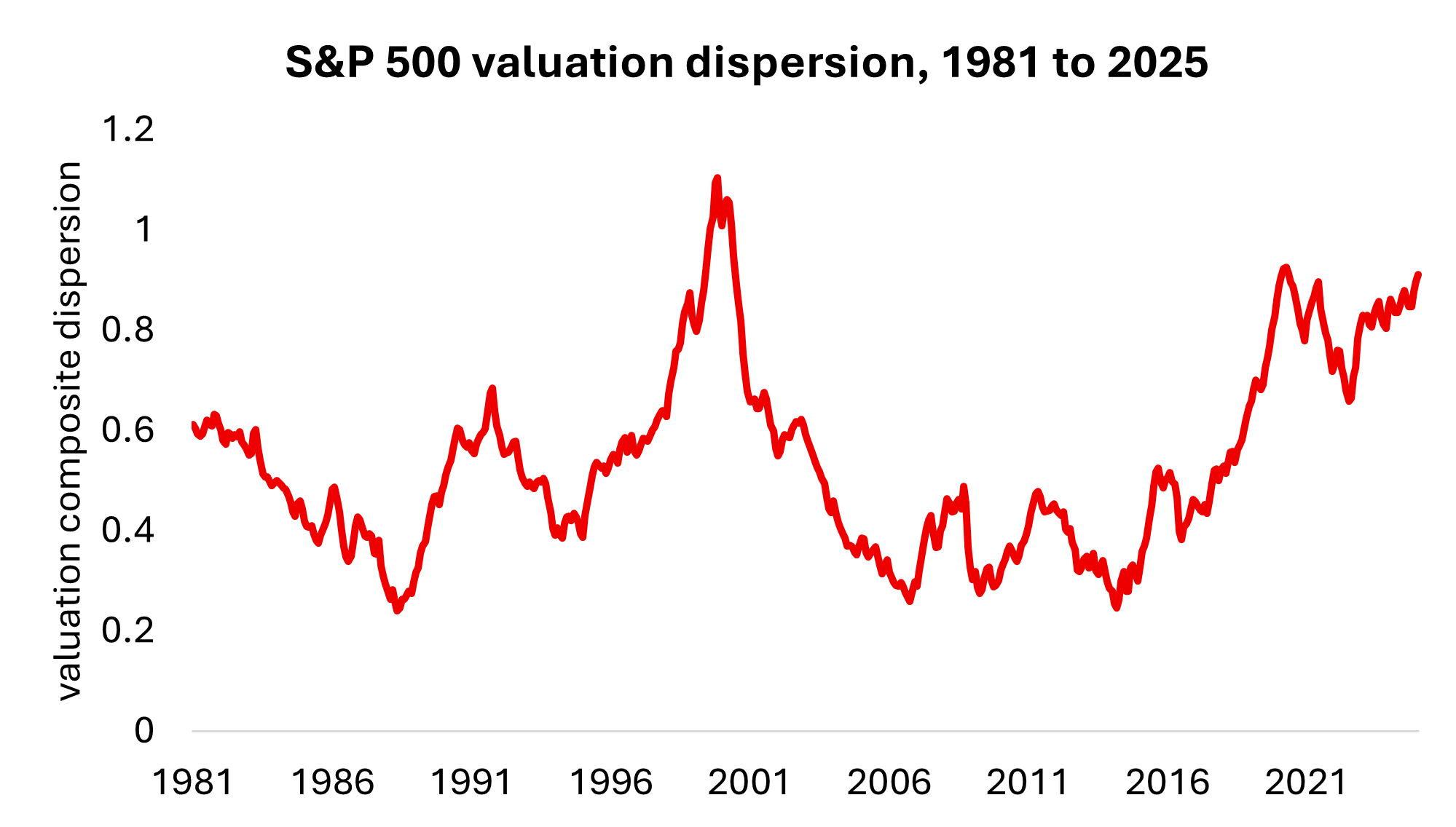
Source: GMO, y-axis reversed
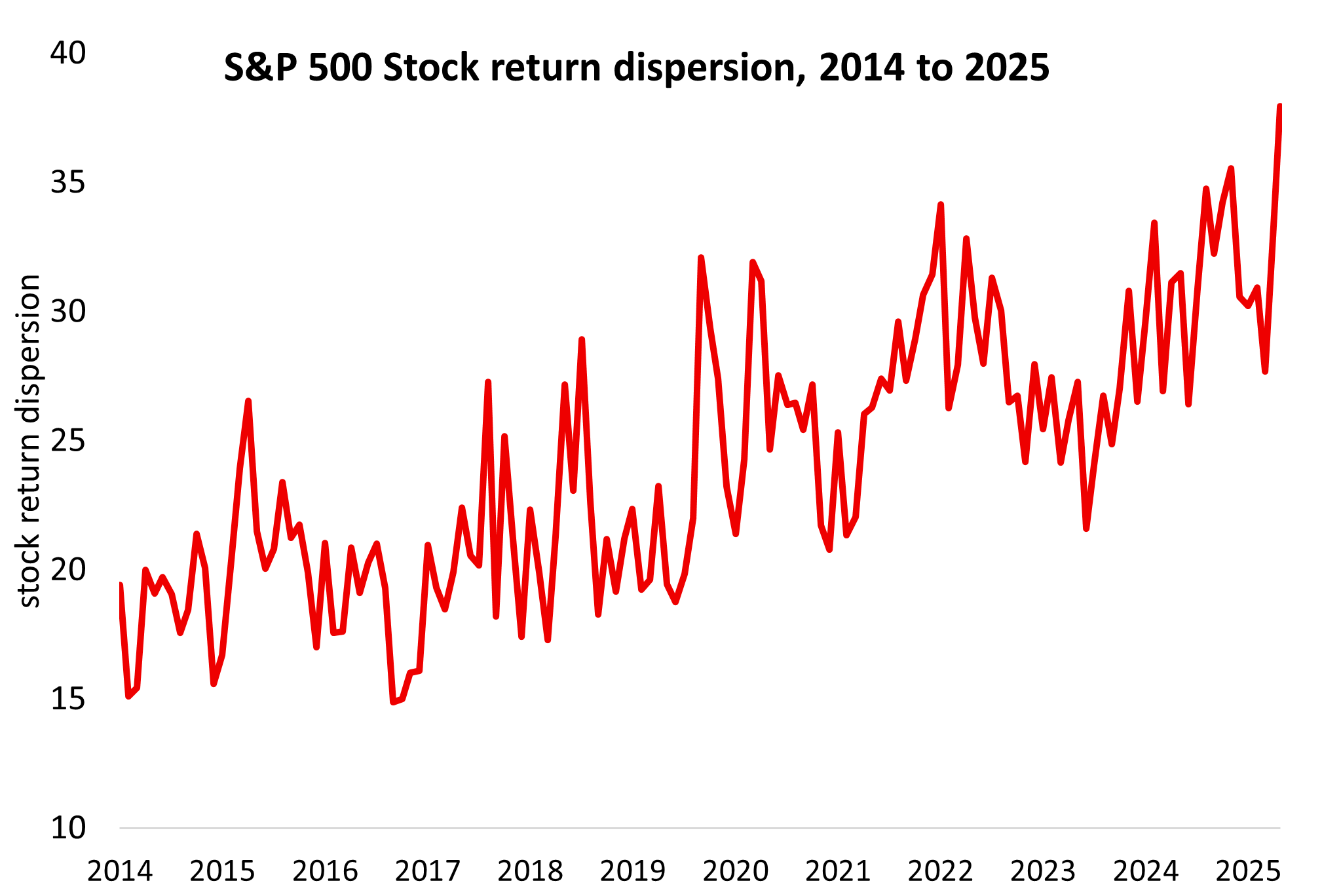
2. Are you seeing more red flags appear in your scans?
Plato uses several forensic accounting tools developed by academics and fraud investigators. One technique draws on Benford’s Law, which predicts a natural pattern in the leading digits of accounting numbers. If a company’s accounts deviate from Benford’s distribution, it may be a sign of manipulation.
Every quarter, we run this analysis across 20,000 of the world’s largest companies, scanning every line item of their accounts over three years. When the patterns diverge, our antennas go up.
And lately, they’ve been lighting up.
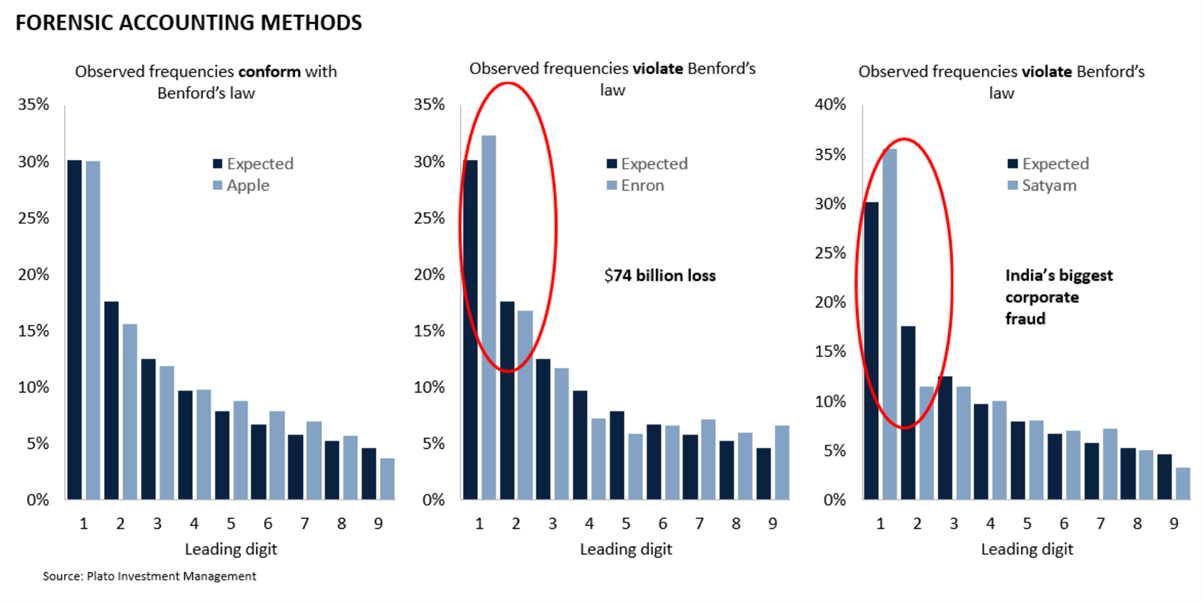
3. What are the general red flags you look for in a potential short candidate?
A company that triggers eight or more is a strong candidate for shorting - our research shows such companies underperform the market by 20% over the next year.
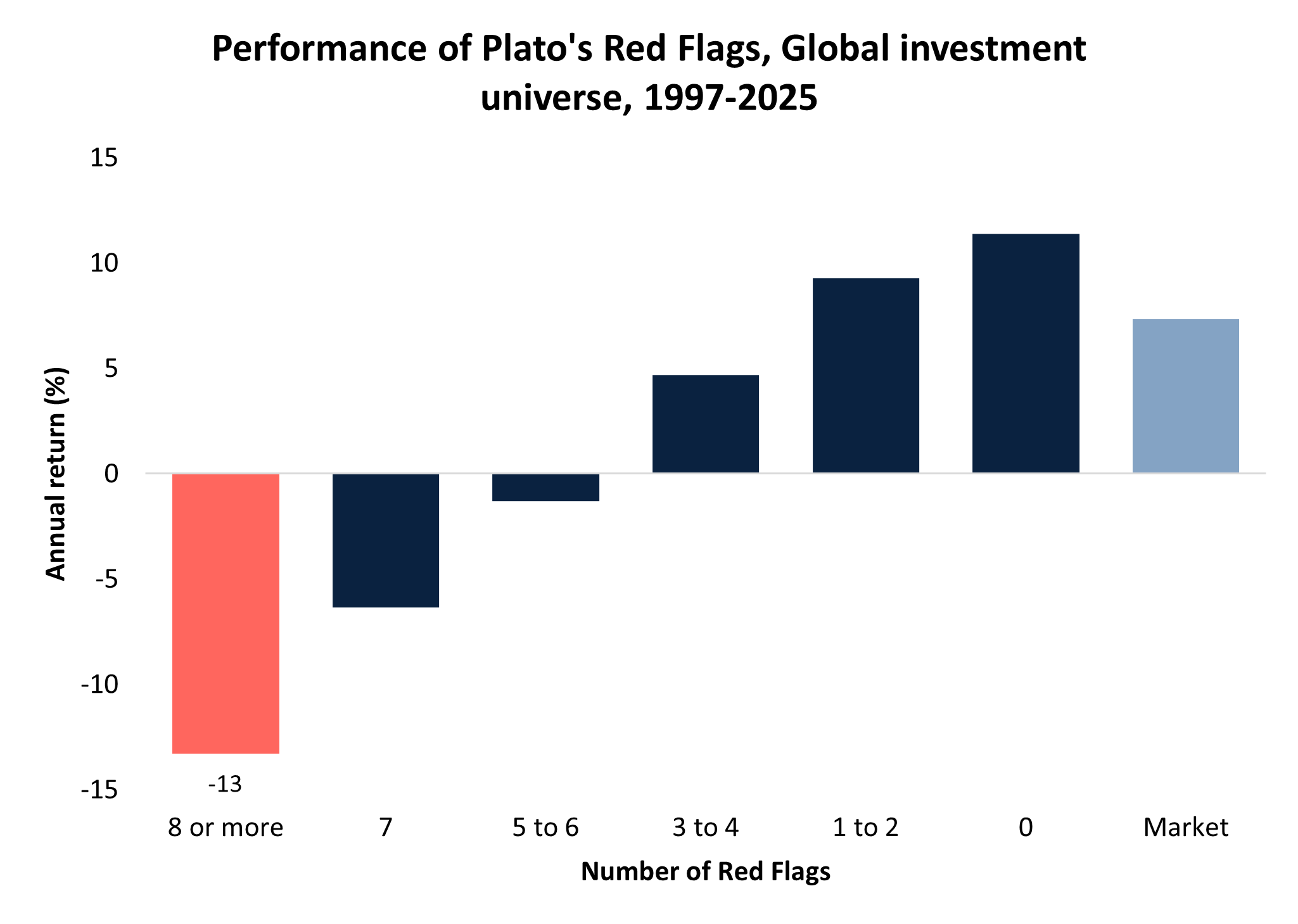
Common warning signs include:
- Negative operating cash flow or, worse, pre-revenue.
- Aggressive revenue recognition or delayed expense recognition.
- Weak governance or insider misalignment.
Pre-revenue companies in particular play to investors’ lottery bias - the belief that a one-in-a-hundred-thousand shot will become the next NVIDIA.
Most, of course, don’t.
“No, no, no, no. Why would you go after revenue? … if you show revenue people will ask how much, and it will never be enough … If you have no revenue, you can say you are pre-revenue, you’re a potential pure play… it’s not about how much you earn, it’s about how much you’re worth, and who is worth the most? Companies that lose money.”
4. Are there any specific companies or areas of the market where you are noticing red flags - what are they?
Money moves, valuations rise - but little new value is created. These feedback loops are starting to multiply across the AI ecosystem. Some commentators call it “full-Ponzi.”
That’s probably too harsh, but any self-referential funding cycle deserves scrutiny.
5. How are Plato and your Global Alpha Fund managing the conditions?
In markets this distorted, long/short strategies are uniquely positioned to profit from the dislocations.
Since its inception, Plato Global Alpha has generated 12.5% p.a. of excess return vs the MSCI World, with almost half of that alpha coming from the short book.
By contrast, passive investors are automatically overweight the most expensive stocks - by design.
When markets stretch this far, dispersion and deception are the active manager's best friends.

4 topics
1 fund mentioned
1 contributor mentioned

